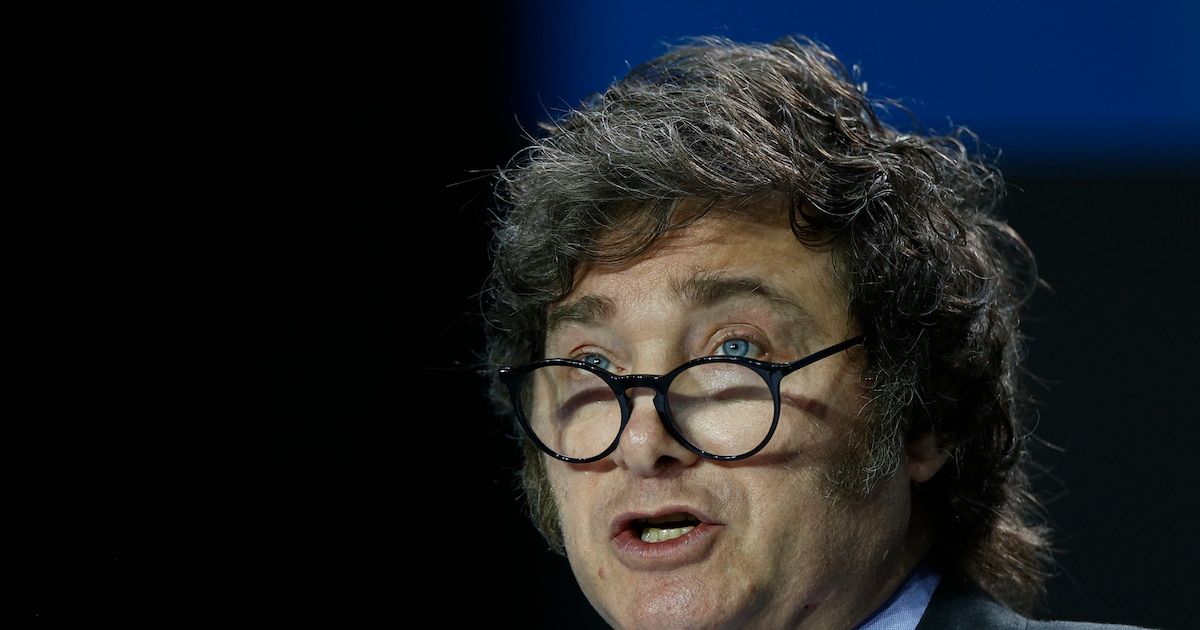All the Answers
Well-known member
The three taxes that Milei wants to lower when economic activity rebounds - Infobae

Source:

Los tres impuestos que quiere bajar Milei cuando rebote la actividad económica
El mandatario dijo que un regreso al crecimiento del producto dará margen para aumentar el gasto o bajar impuestos. “El gasto no lo voy a subir”, dijo
May 21, 2021
The president said that a return to product growth will give room to increase spending or lower taxes. “I'm not going to increase the expense,” he said.

Javier Milei, president of Argentina (EFE)
President Javier Milei assured that he expects a rebound in economic activity to cut taxes . More specifically, he said he is targeting the PAIS Tax, a tax associated with exchange rate barriers that is seen as an emergency imposition, withholdings on exports and another emergency tax that already has decades of history without having been eliminated. : the tax on the check.
“When the GDP recovers I have two options: increase spending or lower taxes. What I am going to do? “I am not going to increase the expense,” Milei said in statements to the LN+ channel.
“The first tax we have in our sights is the PAIS Tax , then we have in our sights the withholdings and then the Bank Debits and Credits . I have always refused to share them because if I do I can't get more out of them,” added the president.
“When the GDP recovers I have two options: increase spending or lower taxes. What I am going to do? "I'm not going to increase the expense."
The taxes that Milei mentions are, precisely, those that focus the attention of specialists because their relevance grew to the extent that the revenue most associated with the activity (VAT) fell along with the economy. The reduction in income through these channels was compensated, more than anything, by the jump in the collection of the PAIS Tax.
In the first 4 months of 2024, the three taxes that Milei has in its sights represented 19.3% of AFIP's total tax resources, this is almost 1 in every 5 pesos that the Treasury collected. They are not the main ones, VAT explains 37% of income and Profits 14.1%, but above all the COUNTRY Tax has played a key role given the bearish tone of the economic cycle.
For comparison, in the same four months of 2023, those taxes considered distortive (Check Tax, PAIS Tax and Withholdings) represented 11.8% of the total. At that time, income from withholdings had fallen to 2.3% due to the droughts that drastically affected exportable balances, the Check Tax had represented a tenth more due to more activity and the PAIS Tax barely 2.2% of the total.
In this context, the successful passage of the fiscal package through the Senate is key so that the Government can free itself from dependence on the PAIS Tax thanks to greater collection from Profits. In line with what Milei said, meanwhile, a rebound in economic activity would also have the same effect, thanks to the corresponding increase in VAT collection that would be generated.
In the interview, the president also referred to the legislative treatment of the Bases Law.
“Where is the Base Law stuck? It determines a path of higher growth, but economic growth is long-term, the situation, between the rebound that the economy is having, that salaries grossly beat food and beverages, the inflation rate is on a clearly path downward, retirements are already outpacing inflation,” he said.
Also, to their perspectives regarding the disinflation process.“What is going to end inflation is the fact that we decide to abort the growth of money, but we have endogenous emission factors, for example due to remunerated liabilities”
“All the deviations that are seen with respect to those numbers (low inflation) have to do with the price recompositions that had been stepped on by Kirchnerism and well, if one corrects them there will be a jump in prices,” Milei added. .
“If we finish cleaning up the remunerated liabilities, matching the fund flows of the debts in dollars that remained from Kirchnerism and we fix the issue of the BCRA puts, with which there is no more monetary issue, in that context, when a price "Someone goes up and has to go down," he added.
“What is going to end inflation is the fact that we decide to abort the growth of money, but we have endogenous emission factors, for example due to remunerated liabilities. But in that aspect we had a 10-point deficit in liabilities and we lowered it to 2. And we have to fix the put issue. The amount of money grows a little but because of those factors,” he commented.

